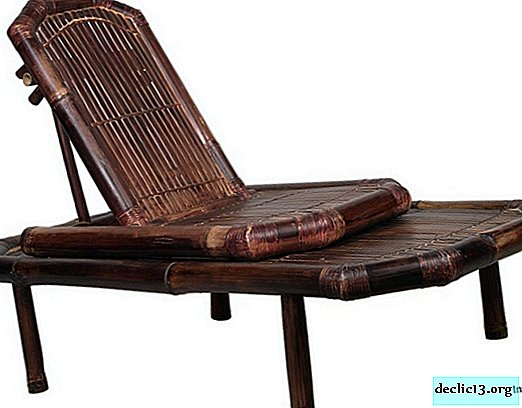How to drive with manual transmission and automatic transmission - step-by-step instructions

Among drivers, vehicles with automatic transmission are popular. But the information on how to drive a car with a manual gearbox is still relevant, especially in Russian driving schools, they mainly master the mechanics.
Manual gearbox is simple and convenient to use compared to a machine. The disadvantage of automatic transmission is that a person who has mastered this control option is unable to control a machine with mechanics, and it is easier for a driver who drives a manual transmission to master an automatic machine.
If you are going to buy a car with a manual transmission or want to get acquainted with this control option, in the article I will consider step-by-step instructions. The mechanics require proper handling, and the quality of the ride determines the knowledge of the nuances related to driving with such a transmission.
Helpful information
- When driving in mechanics, you need an excellent reaction and a sequence of actions worked out to automatism.
- In a car with manual transmission, the main pedal is the clutch. The left foot only presses the clutch, and the right foot presses the brake and gas.
- A “cheat sheet” is provided on the handle, which will tell you how to move the lever to engage the necessary gear.
- A mechanical transmission has four to seven gears, depending on the make of the car. There is also a reverse gear oriented for reversing. It is denoted by the symbol "R".
- Being in the neutral position indicated by the symbol "N", the lever does not hold anything. To engage the first gear, squeeze the clutch and move the lever in the position indicated by “one” in the diagram.
- The clutch pedal is squeezed when changing gears, which shift in order. Do not recommend switching to the third or fifth from the first.
- When approaching an obstacle or intersection, slow down. This can be done with the gear engaged, but sometimes it’s better to move the lever to a neutral position. After a complete stop, start by shifting into first gear.
- When moving on a slippery surface, constantly monitor the stability of the machine. Switch to low gear gradually, otherwise you will lose control when skidding.
- If it is necessary to brake during icing, do this using the engine. Release the gas, engage a lower gear, then engage the clutch - the power plant will slow down and the car will brake smoothly.
- When lifting, shift gears quickly, otherwise roll down. When climbing for a long time, move at second or third speed. Use the first when cornering while lifting.
- It seems that the descent is simpler than the ascent, but it also has difficulties. To prevent an accident during the descent, it is recommended to reduce the speed by brakes and the power plant at the same time. Carefully monitor the machine during descent.
- Parking deserves attention. Getting used to the mechanics, park in first gear, holding the clutch - so you can quickly squeeze the clutch and brake if necessary.
- If a stop is planned on the ascent or descent, wait for the machine to stop, squeeze the handbrake and only then turn on the "neutral". To start the movement, squeeze the clutch, turn on the speed, and then slowly release the clutch, add gas and remove the handbrake when the clutch disks are connected.
I hope the recommendations will help you quickly learn the mechanics and drive correctly. If at first there are difficulties, do not be discouraged. After practicing, master the basics, and a little practice will help to master the art to perfection.
How to drive a car with an automatic transmission
During a conversation with the mechanics of car service stations involved in the maintenance and repair of cars with automatic transmission, it turned out that in most cases the driver’s incorrect actions are the cause of a breakdown in the automatic transmission.
Differences between the machine and mechanics
There is no clutch assembly in an automatic transmission. In mechanics, to change gears, the driver needs to release gas, squeeze the clutch, change the speed. In a car with automatic transmission, the computer is responsible for this.
Driving a machine with a gun is easier than with a mechanic. However, the automatic transmission has disadvantages. A machine with a gun consumes more fuel, and automatic transmission repair and maintenance is more expensive. You cannot tow other vehicles on the machine, as this may cause a transmission failure.
The assertion that a machine with mechanics is more reliable is disputed by weighty arguments and arguments. A motorist who has mastered the mechanics will calmly and quickly deal with the machine.
Driving plan
- Shift the automatic transmission lever to the working position with the brake depressed. Start the movement after shifting into gear, accompanied by a characteristic push.
- In urban driving conditions with constant traffic jams and traffic lights, contrary to the recommendations of "experts", do not put the lever in a neutral position. In such situations, neutral can be switched on mechanically.
- Moving along a long descent, many drivers with mechanics, for the sake of fuel economy, turn off the gear in order to "coast". You cannot do this on the machine.
- In the machine, the oil pump is responsible for lubricating the rubbing parts. After turning off the gear, turn off the pump drive, as a result, the oil supply stops, and the drive wheels continue to transmit torque to the transmission. This leads to the failure of the node.
- It is forbidden to include back speed to a complete stop. Press a brake, wait for a stop, turn on "reverse" and after a push start the movement.
How to save when driving in automatic transmission
Continuing the topic of conversation, I will talk about ways to economical driving on a machine. It’s easy to master the technique of economical driving. I advise you to get acquainted with the features of the node. If you want to save fuel, drive no faster than 110 km / h. Approaching an obstacle in front of which you have to slow down, remove your foot from the gas in advance. Moving coasting, the car consumes less gasoline. I recommend to touch and brake smoothly.
You can save on refueling in another way by outsmarting the transmission. Imagine that the speed of the car in third gear is 60 km / h, the engine speed is at 2500 per minute. Release gas, then press slightly. The machine will switch to the next speed, and the speed of the power plant will decrease.
The biggest blow to the budget is pampering. By pushing the gas pedal to the floor, you force the automatic transmission to go into sport mode. As a result, engine speeds increase. Such a ride empties the tank.
Some argue that the manual box is better, more reliable and cheaper to maintain. This is so, but it can not be compared with an automatic machine in terms of gear shift speed and convenience. It is more convenient for novice drivers to drive a car with automatic transmission.
Transmission History
In conclusion, I will tell the story of the appearance of the gearbox. After the invention of the engine, there was a need for a unit that would be responsible for transmitting torque to the drive wheels. Initially, we did not talk about gear gears. Karl Benz applied several belt pairs with different gear ratios. Thanks to the cross over pulley, the speed of movement along the highway increased.
Wilhelm Maybach later used gears, which allowed him to choose a gear ratio appropriate to the situation on the road. Torque was still transmitted to the wheels through a chain drive. Then Louis Renault created a driveshaft, which was destined to play an important role in the automotive industry. So at the beginning of the last century a progressive box appeared.
The gearbox was not always connected to the power plant housing via a bell. In the 50s of the last century, cars were produced with an independent arrangement of the box, which was connected to the engine through the drive shaft. This concept provided for a diverse arrangement of drive units.
The work of the first boxes was accompanied by noise that exceeded the sound of motors. Drivers had difficulty shifting gears. To engage a lower gear, I had to press two clutch pedals, metering gas. The process did not always succeed, but lasted so long that a large loss of speed forced another downshift.
In those days, each car was equipped with a tachometer. Using the sensor determined the best moment to switch. Employees of driving schools spent a lot of time to teach students to quickly and silently change gears.
At that moment, the Americans did not like the manual box, and this disgust has survived to the present day. But there were other arguments that contributed to the appearance of the machine. This event occurred in 1940. Manufacturers decided to expand the scope of buyers who want to buy a car, women.
Hydromechanical transmission based on a hydraulic clutch connected to a two-row planetary gearbox started the machines. So there was a two-speed automatic transmission, which became the main element of the American standard.
At that time, there was still no famous V8 powerplant, but there were already motors that were not inferior to it in volume. In Europe, the machine appeared later along with premium cars. Later they created a torque converter, which limited the number of gears in the machine to three for a long period.
Mechanical transmissions developed more slowly. In 1928, through the efforts of Charles Kettering at the request of the GM concern, a synchronization mechanism appeared. But the manual gearbox was used only in Corvettes.

















